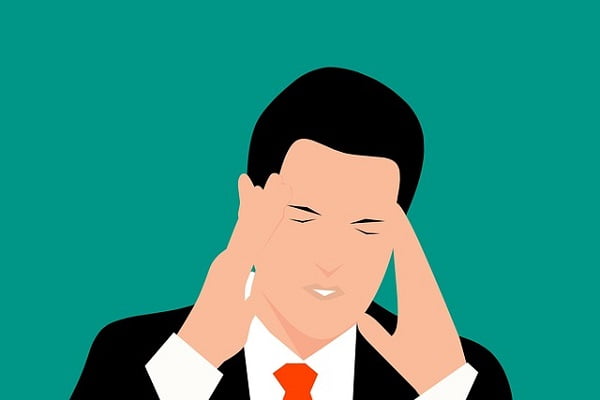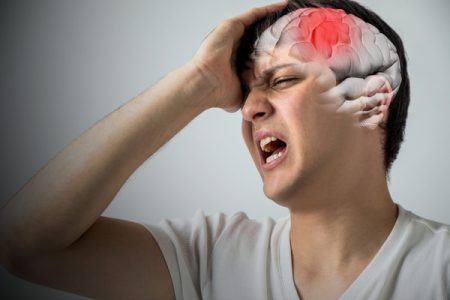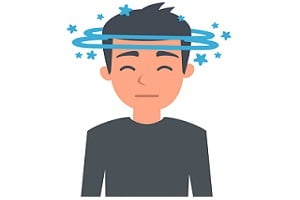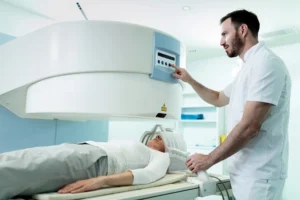CPAP Therapy Helps in Recuperation from Stroke
- Updated on: Sep 26, 2019
- 3 min Read
- Published on Sep 26, 2019

An impression of stroke and sleep apnea
Stroke occurs when the flow of blood to an area of the brain is interrupted or cut off. Due to this, stroke is also referred to as brain attack. Sleep apnea is blamed to be one of the reasons of stroke. Reasons why obstructive sleep apnea occurs may include obesity, nasal congestion, unusual inner neck structure, etc.
Link between Stroke and Obstructive sleep apnea (OSA or sleep breathing problem)
Preventing obstructive sleep apnea syndrome is supposed to be a primary way to reduce the risk of stroke. This is because sleep apnea can act as an autonomous risk factor for the progression of stroke. There are multiple conditions which occur due to increased risk of sleep apnea such as blood pressure, hypertension, diabetes, etc. Sleep apnea is a breathing interruption during sleep because the airway is completely blocked.
A recent innovation in the path of recovery from stroke- The CPAP therapy
Continuous positive airway pressure therapy (i.e. CPAP therapy) is a recent development that helps to create a constant passage of airflow (in the throat) to avoid the blockage and collapsing of airways while breathing. CPAP is a known therapy to treat pre-term infants with underdeveloped lungs.
Knowing the mechanism for CPAP therapy
For the CPAP therapy, CPAP machine is used. When air passages are blocked, a CPAP machine facilitates pressurized air to blow through the airway. This helps to prevent the airway from collapsing while breathing. The main components of CPAP machine are:
- A nasal (tight-fitting) CPAP mask (it can be a full-face mask)
- A CPAP hose to be attached to the mask for the air passage (typically 6-feet in length)
- Heated humidifier which adds moisture to the air (to be inhaled).
Interlinking Stroke, Apnea and CPAP Therapy
CPAP therapy is beneficial in providing constructive information with reference to the role of basic cell and molecular mechanisms in the patho-physiology of obstructive sleep apnea.
Obstructive sleep apnea is a condition that occurs due to collapsing or blockage of tissues that leads to certain conditions such as gasping, loud snoring, insomnia, broken sleep, excessive daytime sleepiness, headache in the morning, throat which is extremely dry, raw or sore on waking up. During sleep, there are higher chances that a person might suffer from several heart diseases, one of which might be stroke.
To avoid the risk of stroke, modern day inventions are used to treat obstructive sleep apnea. A study stated that sleep apnea should be treated in stroke patients with the help of CPAP technology as this treatment is seen to be more effective than many others. CPAP therapy is a known and safer technology to reduce sleep apnea disorder. Various statistical analyses have proven that several cardiac patients have recovered with the use of CPAP therapy. In very few studies, the relationship between stroke and apnea is poorly accepted.
Some clinical trials in patients with heart failure and central sleep apnea show no strong benefit associated with CPAP therapy treatment and certain ongoing trials are examining the use of adaptive servo-ventilation to prevent obstructive sleep apnea and reduce the chances of stroke.
Acceptance of CPAP therapy
Some patients who are frequent users of CPAP therapy have shared their experiences regarding it. Although, the CPAP therapy is a highly acknowledged advancement in society to reduce the risk of stroke, but some of the patients taking it have had problems adjusting to it. CPAP therapy is sometimes supposed to be an uncomfortable treatment as sleeping with a mask over the face leads to nasal dryness and facial irritation.
Though after a certain time duration, most people adapt to the conditions and accept the procedure to be followed. Many people also said that they stopped using CPAP therapy due to the discomfort. Therefore, in terms of comfort, it shows moderately acceptable results.












